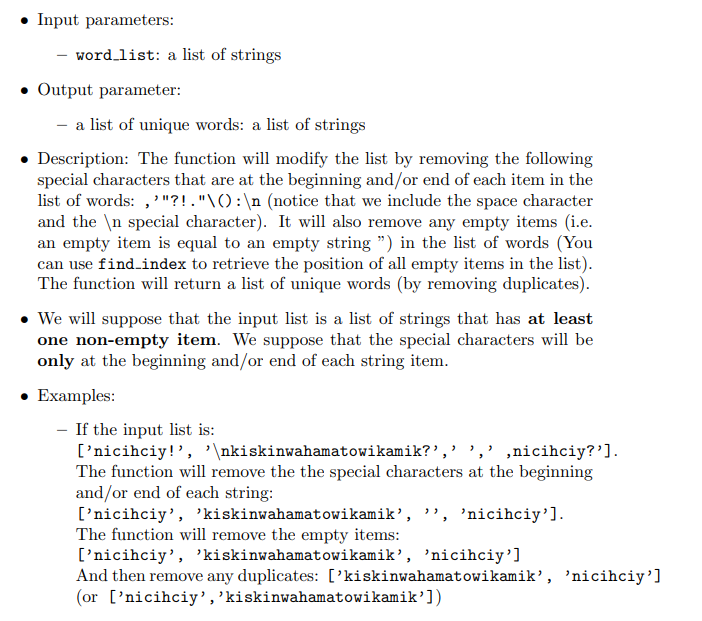Home /
Expert Answers /
Computer Science /
input-parameters-word-list-a-list-of-strings-output-parameter-a-list-of-unique-words-a-pa554
(Solved): - Input parameters: - word_list: a list of strings - Output parameter: - a list of unique words: a ...
- Input parameters: - word_list: a list of strings - Output parameter: - a list of unique words: a list of strings - Description: The function will modify the list by removing the following special characters that are at the beginning and/or end of each item in the list of words: ," "?!. ."(): \n (notice that we include the space character and the \( \backslash \mathrm{n} \) special character). It will also remove any empty items (i.e. an empty item is equal to an empty string ") in the list of words (You can use find_index to retrieve the position of all empty items in the list). The function will return a list of unique words (by removing duplicates). - We will suppose that the input list is a list of strings that has at least one non-empty item. We suppose that the special characters will be only at the beginning and/or end of each string item. - Examples: - If the input list is: ['nicihciy!', '\nkiskinwahamatowikamik?',' ',', nicihciy?']. The function will remove the the special characters at the beginning and/or end of each string: ['nicihciy', 'kiskinwahamatowikamik', ,', 'nicihciy']. The function will remove the empty items: ['nicihciy', 'kiskinwahamatowikamik', 'nicihciy'] And then remove any duplicates: ['kiskinwahamatowikamik', 'nicihci] (or ['nicihciy', 'kiskinwahamatowikamik'])
